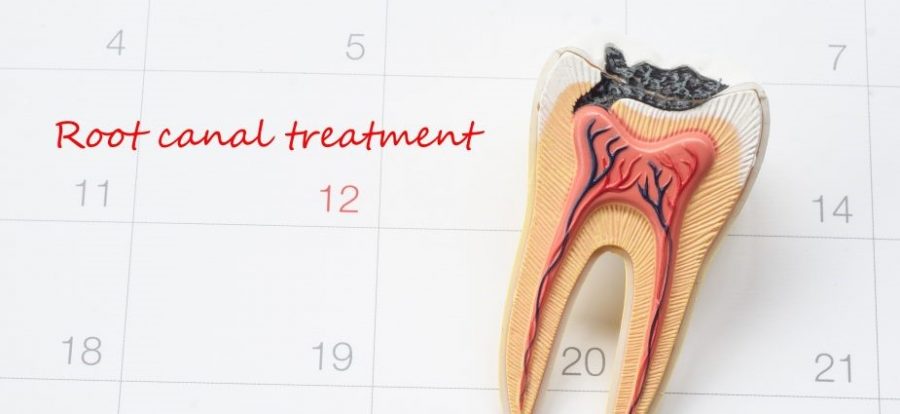Tooth pain can be unbearable, and a badly damaged or infected tooth can significantly impact your quality of life. Fortunately, modern dentistry offers many solutions to preserve and protect natural teeth. One such option is a root canal procedure, which can save a damaged tooth and prevent the need for extraction. At Royal Dental Clinics, we are committed to providing our patients with high-quality dental care, including state-of-the-art root canal procedures. Our experienced dentists use the latest techniques and technology to ensure that our patients receive pain-free and effective treatments. In this blog, we will explore the benefits of a root canal procedure and how it can help you preserve your natural teeth and maintain a healthy smile.
What is a Root Canal Procedure?
A root canal procedure is a dental treatment that is performed to repair and save a badly damaged or infected tooth. The procedure involves removing the damaged or infected tissue from the pulp of the tooth, which is the soft tissue inside the tooth that contains nerves and blood vessels. The pulp is then cleaned and disinfected, and the space is filled with a special material to provide stability and support. This process helps to prevent the spread of infection and can alleviate tooth pain and discomfort.
The procedure is usually performed under local anesthesia and involves the following steps:
Removing the damaged or infected pulp: The dentist will create a small hole in the tooth’s crown and use special instruments to remove the damaged or infected pulp from the pulp chamber and root canals.
Cleaning and shaping the root canals: The dentist will clean and shape the root canals to prepare them for filling.
Filling the root canals: The dentist will fill the root canals with a biocompatible material, such as gutta-percha, and seal the access hole with a filling.
Placing a crown: Depending on the extent of the damage, the dentist may recommend placing a crown on the tooth to protect it from further damage.
Why may a Root Canal Procedure be necessary?
A root canal procedure may be necessary to save a badly damaged or infected tooth. If the tooth’s pulp becomes inflamed or infected due to decay, trauma, or other factors, it can cause severe pain and discomfort. Ignoring the problem may lead to the infection spreading to the tooth’s root and the surrounding tissues, resulting in the need for an extraction. A root canal procedure is necessary when the damage to the tooth is too severe to be repaired by a simple filling or crown.
Some common signs that a root canal procedure may be necessary include severe tooth pain, sensitivity to hot and cold temperatures, swelling in the gums, and a persistent bad taste or odor in the mouth. If you experience any of these symptoms, it’s essential to seek the advice of a qualified dentist or endodontist who can determine whether a root canal procedure is necessary to save your tooth.
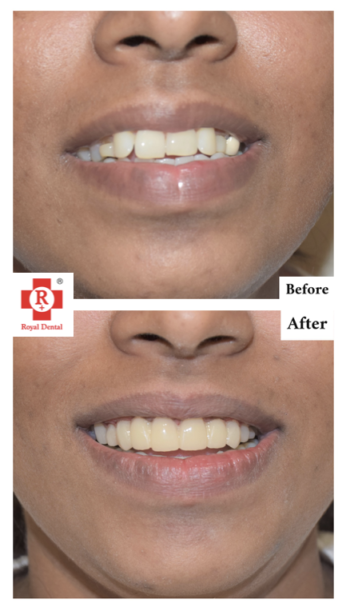
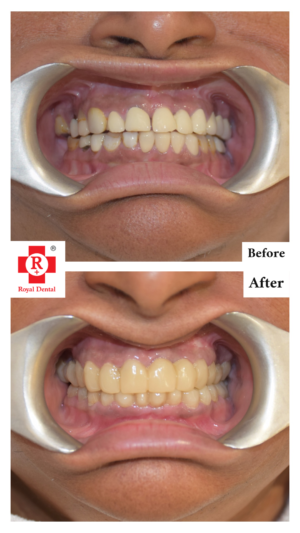
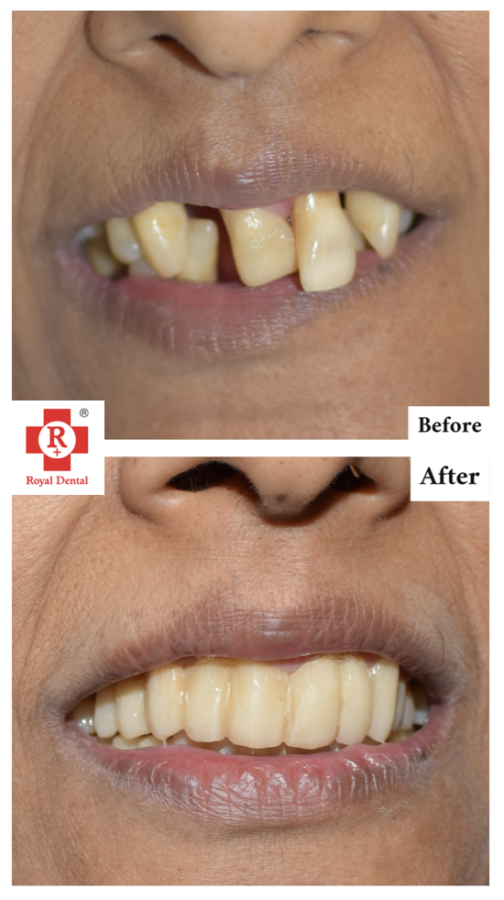
A root canal procedure may be necessary if the pulp inside the tooth becomes infected or damaged due to:
Deep decay: When bacteria penetrate deep into the tooth, it can cause decay that affects the pulp.
Trauma: A tooth can become damaged due to an injury or accident, leading to pulp damage.
Cracks or chips: A cracked or chipped tooth can expose the pulp, making it vulnerable to infection.
Multiple dental procedures: Repeated dental procedures, such as fillings or crowns, can damage the pulp over time.
If left untreated, an infected or damaged pulp can cause significant pain and discomfort and may lead to tooth loss. A root canal procedure can help save the tooth and prevent the need for extraction, which can be more costly and time-consuming.
Symptoms that Indicate the need for a Root Canal
Severe Tooth Pain: If you experience severe pain in your tooth, especially when you chew or apply pressure, it could be a sign that the pulp inside the tooth is inflamed or infected.
Sensitivity to Hot and Cold: If you feel a sharp, shooting pain in your tooth when you eat or drink hot or cold foods, it could be a sign of a damaged or infected tooth.
Swelling in the Gums: Swelling and tenderness in the gums around the affected tooth may indicate that the tooth’s root is infected or inflamed.
Discoloration of the Tooth: A tooth that has become discolored, especially if it’s darkened, could be a sign that the pulp inside the tooth is damaged or dying.
Persistent Bad Taste or Odor in the Mouth: If you have a persistent bad taste or odor in your mouth, even after brushing and flossing, it could be a sign of an infected or damaged tooth.
Benefits of a Root Canal Procedure
Pain Relief: A root canal procedure can alleviate severe tooth pain caused by infection or inflammation of the tooth’s pulp.
Saves Natural Teeth: A root canal procedure can save a damaged or infected tooth, allowing you to preserve your natural teeth and avoid the need for an extraction.
Improves Oral Health: By removing the damaged or infected tissue, a root canal procedure can prevent the spread of infection and help you maintain good oral health.
Restores Function: After a root canal procedure, your tooth will be restored to its full function, allowing you to eat and speak comfortably.
Aesthetically Pleasing: A root canal procedure can also improve the appearance of your teeth and enhance your smile.
Cost-Effective: In most cases, a root canal procedure is a cost-effective solution compared to tooth extraction and replacement options such as dental implants or bridges.
Root Canal Procedure at Royal Dental Clinics
At Royal Dental Clinics, our experienced dentists use state-of-the-art technology and techniques to perform root canal procedures with minimal pain and discomfort. Our team of dental professionals will work with you to ensure that you are comfortable throughout the procedure.
Here’s what you can expect during a root canal procedure at Royal Dental Clinics:
Evaluation: Before the procedure, our dentist will examine your tooth and take x-rays to determine the extent of the damage and the condition of the pulp.
Anesthesia: We will use local anesthesia to numb the area around the tooth, ensuring that you are comfortable throughout the procedure.
Pulp Removal: Our dentist will make a small opening in the top of the tooth and remove the damaged or infected pulp.
Cleaning and Disinfection: The pulp chamber and root canals will be cleaned and disinfected to remove any remaining bacteria or debris.
Filling: The cleaned space will then be filled with a biocompatible material called gutta-percha to provide support and stability.
Restoration: After the root canal procedure, we may recommend placing a crown or filling to restore the tooth’s structure and protect it from further damage.
Aftercare and Recovery
Pain Management: You may experience some pain and discomfort after the procedure, which can be managed with over-the-counter pain relievers like ibuprofen or acetaminophen.
Avoid Chewing on the Affected Tooth: It’s best to avoid chewing on the treated tooth until the permanent filling or crown is placed.
Good Oral Hygiene: Brush and floss your teeth regularly to keep your teeth and gums clean and healthy. Be gentle around the treated tooth and avoid brushing too hard or flossing aggressively.
Avoid Hard or Sticky Foods: It’s best to avoid hard or sticky foods that could damage or dislodge the temporary filling or crown.
Follow Up Appointments: Be sure to attend any follow-up appointments with your dentist to monitor the healing process and ensure that the tooth is fully restored.
Root Canal Treatment Procedure
During a root canal procedure, the dentist will numb the area around the tooth and make a small opening in the top of the tooth. They will then use small instruments to carefully remove the infected or damaged pulp tissue from inside the tooth. Once the pulp has been removed, the dentist will clean out the inside of the tooth to make sure that all of the bacteria and infection have been eliminated. The tooth will then be filled with a special material to help support the structure of the tooth.
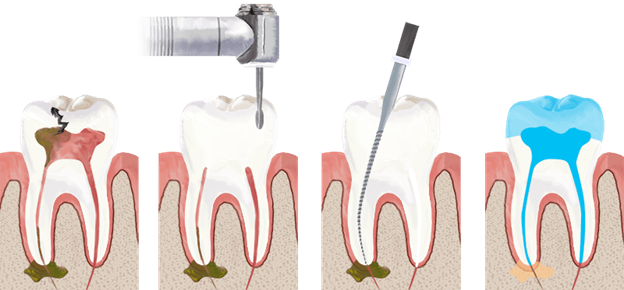
After a root canal procedure, patients may experience some discomfort and sensitivity for a few days, but this can usually be managed with over-the-counter pain medication. It’s important to follow your dentist’s instructions for caring for the tooth after the procedure, including avoiding chewing on hard or sticky foods for a few days and practicing good oral hygiene.
Root canals are a very effective way to save damaged or infected teeth, and they have a high success rate. However, in some cases, a tooth may need to be extracted if the damage is too severe or if the root canal is not successful. If you are experiencing tooth pain or discomfort, it’s important to see a dentist as soon as possible to determine the best course of treatment.
Conclusion
A root canal procedure is an excellent option for saving a damaged tooth and avoiding extraction. With the expertise and advanced technology available at Royal Dental Clinics, patients can receive top-notch care and enjoy the benefits of a healthy, natural smile. So, if you are experiencing any symptoms of tooth damage or infection, do not hesitate to seek a consultation with a qualified dentist at Royal Dental Clinics.

